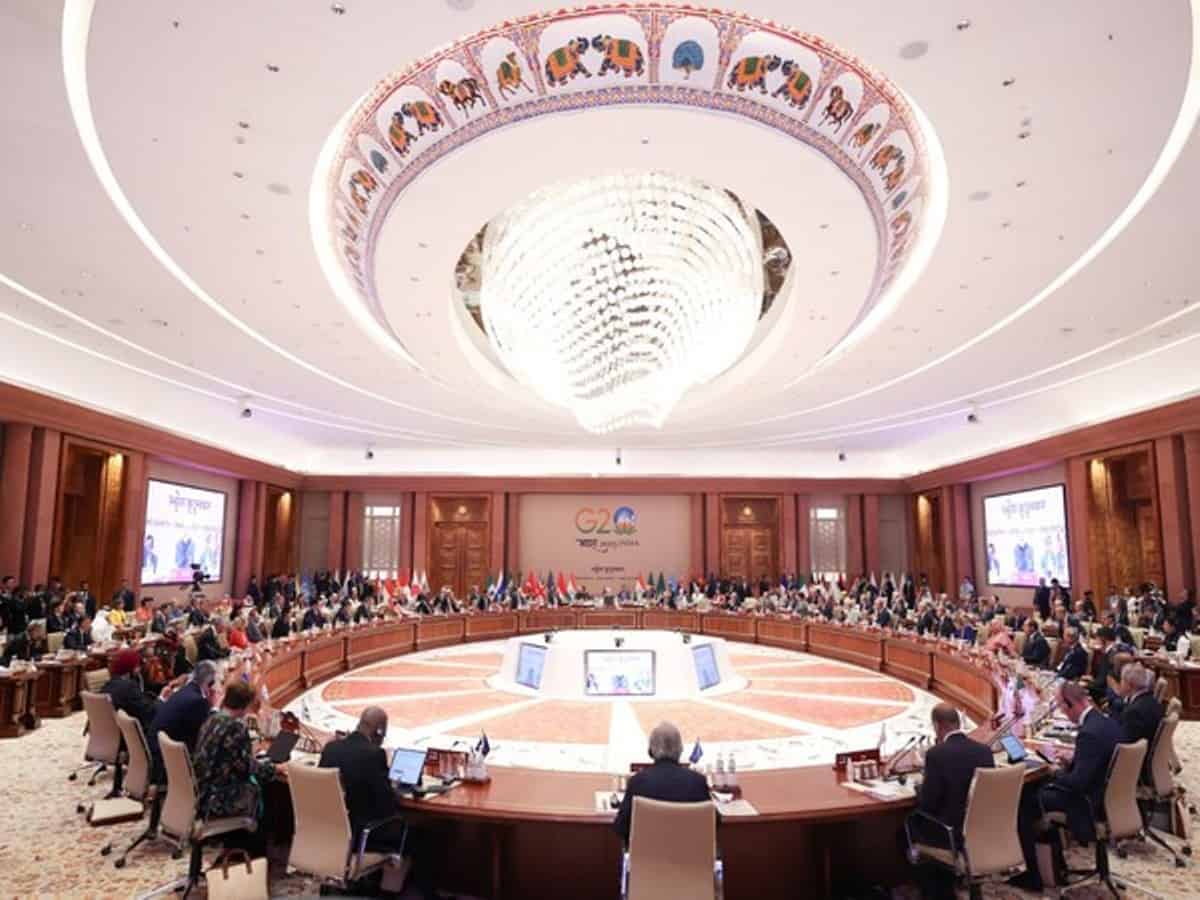
New Delhi: The G20 Summit successfully culminated with multiple bilateral meetings held with world leaders and the announcement of various initiatives to pave the path for enhanced relations among the G20 countries as well as the European Union and the newly added African Union.
External Affairs Minister S Jaishankar on Sunday highlighted that the New Delhi Declaration showed that our Presidency was able to take ideas, shape global issues, bridge divides and forge consensus.
“The G20 Summit and its bilateral meetings concluded today in New Delhi. The New Delhi Declaration shows that our Presidency was able to table ideas, shape global issues, bridge divides and forge consensus,” Jaishankar tweeted on his social media ‘X’.
He further stressed that the focus was on the Global South.
“We kept the focus on Global South. We showcased our civilizational heritage even as we highlighted contemporary achievements.”
Jaishankar said the landmark initiatives launched included the Global Biofuel Alliance and the India-Middle East-Europe Economic Corridor (IMEC).
Jaishankar emphasizing the five key outcomes of the G20 Summit held in New Delhi on September 9-10.
First, noting the Green Development Pact, the EAM said the declaration “envisages a green development pact for a sustainable future, it endorses high-level principles on lifestyle for sustainable development, voluntary principles of hydrogen, the Chennai principles for a sustainable resilient blue economy and the Deccan principles on food security and nutrition among others…”
The EAM emphasized that the G20 has recognized the need for a post-pandemic world order that differs from the one before it. He highlighted that the G20 has played a significant role in preparing India to engage with the world effectively.
Meanwhile, G20 Sherpa Amitabh Kant said, “The key achievements include achieving achieved a green development pact…every single country has come together to focus on green development pact which has financing, which has a focus on global greenhouse gas emission by 43 per cent by 2030, which has a doubling provision of adapting finance by 2025, which has a global biofuel alliance…”
Second was the Action Plan on Sustainable Development Goals. aishankar on Saturday said the New Delhi Declaration adopted by G20 leaders focuses on promoting strong sustainable, balanced and inclusive growth and seeks to accelerate progress on Sustainable Development Goals (SDGs). The Leaders of the member countries committed to enhancing G20 cooperation and partnerships to address challenges being faced in the implementation of the 2030 Agenda.
The 2030 Agenda for Sustainable Development was launched by a UN Summit in New York on 25-27 September 2015 and is aimed at ending poverty in all its forms. The UN 2030 Agenda envisages “a world of universal respect for human rights and human dignity, the rule of law, justice, equality and non-discrimination”.
Jaishankar in his tweet stated the third key outcome, High-level principles on anti-corruption. The G20 Declaration noted that the world leaders reaffirmed the commitment to zero tolerance for corruption. Highlighting the G20 High-level principles, it stated “Strengthening law enforcement related international cooperation and information sharing for combating corruption. Additionally, it also noted to reaffirm support to enhance global efforts to seize, confiscate and return criminal proceeds to victims and states…
Noting the third principle, it said, “Reaffirm our commitment to demonstrate and continue concrete efforts and share information on our actions towards criminalizing foreign bribery and enforcing foreign bribery legislation…”
Jaishankar said the third key outcome was support for Digital Public Infrastructure. On this, G20 Chief Coordinator Harsh Vardhan Shringla on Saturday said there will be a strong emphasis on technology, linked to digital public infrastructure during the G20 India’s presidency.
He pointed out that one of the major takeaways is the central bank’s digital currency, through which even international media persons, who did not have bank accounts in India got some money in their mobile wallets to buy products digitally in the crafts mela.
Last but not least, the fifth key outcome was the reform of Multilateral Development Banks.
Addressing a joint press conference after the G20 Declaration was adopted, Sitharaman on Saturday talked about the key achievements of the Indian Presidency in the finance track on Multilateral Development Banks.
The minister said that the Capital Adequacy Frameworks (CAF) recommendations are focused on enabling MDBs to use the existing resources effectively.
In the G20 declaration adopted on the first day of the G20 summit, the member countries endorsed the G20 Roadmap for Implementing the Recommendations of the G20 Independent Review of MDBs Capital Adequacy Frameworks and called for its ambitious implementation, within MDBs’ own governance frameworks while safeguarding their long-term financial sustainability, robust credit ratings and preferred creditor status.
Jaishankar further praised the African Union’s inclusion in the G20 membership and called it a major achievement.
“The G20 membership of the African Union was a major achievement,” he tweeted.
In his opening remarks at the 18th G20 Leaders’ Summit on Saturday, PM Modi invited the African Union, represented by Assoumani, to take a seat at the table of G20 leaders as a permanent member.
The African Union chairperson expressed his gratitude to the G20 member countries for the historic inclusion of the bloc in the G20 family.
Opening up on the moment when Prime Minister Narendra Modi hugged him after formally inducting the African Union into the G20 family, the AU Chairperson said it was an emotional one for him.
“I was about to cry. It was a great emotion for me. Because actually, we thought that there was going to be a debate and then a decision would be taken but at the very beginning of the Summit it was announced that we were a member,” he said.
Furthermore, Jaishankar added that PM Modi’s vision gave the Summit a clear direction for growth and development in the upcoming years.
“PM @narendramodi’s vision gave the Summit a clear direction for growth and development in the years ahead,” Jaishankar tweeted on ‘X’.



